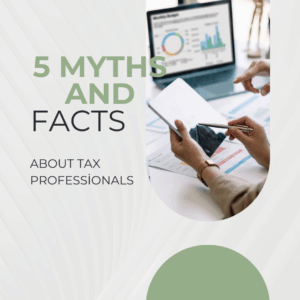The Offer in Compromise can erase years of tax debt… but only if you know how to avoid the mistakes that get most offers rejected.
If you’re struggling with tax debt, here’s the truth the commercials won’t tell you:
Yes, you can settle with the IRS for far less than you owe but only if you qualify.
And most people don’t… unless they know how to prove it.
That’s where things go wrong for thousands of taxpayers every year. You’ve heard the ads: “Settle your tax debt for pennies on the dollar!”
Sounds like instant relief… until the IRS rejects your application, adds more penalties, and restarts collections.
The Offer in Compromise (OIC) is legitimately one of the most powerful tax relief tools the IRS offers.
But it’s also one of the most misunderstood and most misrepresented programs in the entire tax system.
At Burgess Tax Relief, we’ve helped countless taxpayers figure out what they truly qualify for and, when they do, navigate the complex process to achieve life-changing results. Before you consider applying, here’s the truth you must understand.
Myth #1: Anyone Can Settle for Pennies on the Dollar
Reality: Only a small percentage of taxpayers actually qualify.
The IRS does not approve an OIC because you’re overwhelmed, frustrated, or behind on bills.
They approve offers only when you can prove that paying the full amount would create serious financial hardship.
To determine this, the IRS analyzes:
- Current income
- Allowable living expenses
- Assets and equity
- Future earning potential
If their formula shows you can afford to pay through an installment agreement, your offer will be rejected no matter how stressed you are.
This is why a detailed financial analysis is non-negotiable before submitting an OIC.
Most denials happen because the taxpayer took a guess instead of using the IRS’s required calculations.
Myth #2: The IRS Will Cut You a Deal If You Just Ask Nicely
Reality: An OIC is pure math, documentation, and negotiation not sympathy.
Submitting an Offer in Compromise is not like asking a bank for leniency.
The IRS requires:
- IRS Form 433-A(OIC) or 433-B(OIC)
- Complete financial documentation
- A calculation of your Reasonable Collection Potential (RCP)
- Bank statements
- Asset valuations
- Proof of expenses
Miss even one required document → automatic rejection.
Undervalue an asset → rejection.
Incorrect expense amounts → rejection.
A successful OIC requires precision, strategy, and experience not hope.
This is where professional representation changes everything.
A properly prepared, mathematically accurate offer dramatically increases your chances of approval.
Myth #3: If My OIC Is Denied, I’m Out of Options
Reality: A denial is NOT the end of your case.
An OIC can be rejected for reasons that have nothing to do with your actual qualifications.
We’ve helped taxpayers whose offers were denied simply because:
- A document was missing
- A number was miscalculated
- An expense wasn’t properly substantiated
- An asset was misunderstood
- A life change wasn’t reflected in the application
In many cases, you can appeal or reapply with stronger documentation.
And if an OIC still isn’t the right fit, you may qualify for:
✔ Currently Not Collectible (CNC) status
Stops IRS collections when you legitimately cannot pay.
✔ Partial Payment Installment Agreement (PPIA)
Pay far less than your full balance over time.
These options can be just as powerful depending on your situation.
How Burgess Tax Relief Helps You Win Your Case
We don’t sell fantasies we deliver real, data-driven results.
Here’s what we do differently:
✔ Full IRS transcript review
We check every detail the IRS sees about you before they do.
✔ Complete financial analysis using IRS formulas
No guessing. No estimates. Only exact numbers that qualify.
✔ Professionally prepared OIC package
Organized, compliant, and designed to withstand IRS scrutiny.
✔ We handle all communication with the IRS
You never speak to them directly.
✔ We evaluate every possible tax relief option
If an OIC isn’t your best path, we find the one that is.
Our goal isn’t to “sell” you an OIC —
it’s to solve your tax problem permanently.
Get the Facts Before You File, Your Future Depends On It
The Offer in Compromise is one of the IRS’s most effective relief programs, but also one of the most challenging. Most taxpayers who apply alone get rejected.
Most who apply correctly get approved.
The difference is preparation. If you’re serious about settling your tax debt and getting a fresh start, reach out today.
👉 Contact Burgess Tax Relief for a free consultation.
No hype. No false promises. Just honest answers based on real IRS rules and a clear plan to help you finally move forward.






